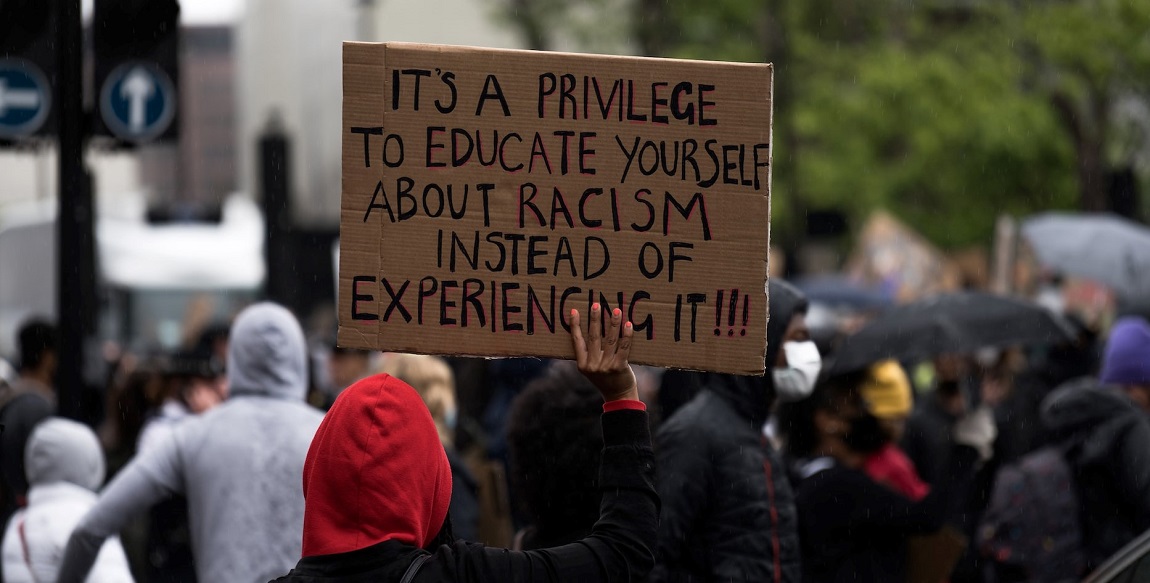In Write Experiment 5 in Sit Write Share, I suggest that people collect story seeds A story seed is a brief note of an experience that can later turn into a written story. In this piece originally posted in 2020, I have sprouted several story seeds to illustrate something important to me: the need to honor Martin Luther King Jr.’s birthday in a spirit of humility and awareness of privilege.
The Question
Back in 2020 in the midst of the Black Lives Matter movement intensified by the unconscionable death of George Floyd, I struggled to find my way. I felt silent, and the words, “Silence is complicity,” keep running through my mind. I’m not a particularly brave person physically. I didn’t want to risk either Coronavirus or police brutality by participating in a march. I learned this about myself in college when an anti-Vietnam march turned nasty, and my friend and I ducked out and went to the movies.
Lift a Voice
A friend reminded me that I’d set up a false dichotomy. It doesn’t have to be either silent or protesting. There are other ways to lift up a voice.
Consciousness raising! That term from my youthful feminist experiences bubbled up. Maybe my contribution is to reflect on my own experiences and tell stories. Certainly, I see strong themes of White privilege. Thinking about my own history raises my own consciousness, and maybe if we share stories, we’ll spark awareness in each other.
The people in these stories are not the only Black people I’ve known in my life. I’ve worked with, worked for, learned with, and learned from many Black people. But these are the stories that highlight my own White privilege.
Past Experiences
Experiences involving Adults
My mother remarried when I was six years old, moving the family from the Bronx to North Carolina. In the Bronx where my mother had been in library school, our babysitter and house cleaner had both been White. We called them Mrs. Connolly and Mrs. Nielson. In Durham, my mother had what were then called maids to help her keep house and watch children. They were Black, and we called them by their first names: Percy and Betty. I didn’t even know their last names, so forgive the use of first names as the stories unfold.
I remember an occasion when I was sitting in the upstairs TV room watching a soap opera with Betty, who was ironing my family’s clothes. The soap opera story about a girl pregnant out of wedlock was pretty fascinating to my 10-year-old self, but the conversation with Betty was very uncomfortable. She was looking at me in disgust and saying that girls my age in her family were doing the family ironing. Why was I sitting there looking at the TV without doing something constructive with my hands? I can still feel an echo of shame.
Experiences involving Children
My school in Durham was segregated, as were all schools in North Carolina back then. I rarely saw Black children. I think Percy occasionally brought her grandchildren to work with her on rare occasions when there was no one home to care for them. This was very different from my experience in the Bronx. I had a Black boy friend in my kindergarten.
When school integration started, Percy’s grand-daughter was one of the first Black children to attend the previously all-White junior high school in our district. I remember hearing stories that she came home from school and cried every afternoon. Then the grownups in her family urged her to gather her courage for the next day of school. I have always thought how hard it must have been for them to send their child to the front lines of the struggle. I knew I wasn’t brave enough to be her.
When I was 13, my mother left my step-father, and we moved out West. White babysitters again, also called by their last names. We had considerably less money, and my single mother was working full time. I learned to vacuum, clean bathrooms, and iron my brother’s school shirts.
Who Cares for the Babies?
Fast forward several years. I returned to North Carolina and became a young mother. When I hired people to care for my babies 20 hours a week in my home so that I could work part-time, the people available for this work were older Black women.
One of them told me that she’d far rather be taking care of her own grandchild, but her daughter was a professional woman who didn’t want children. That stung a little at the time, but I get it now that I’m a grandmother myself. She took care of my son 20 hours a week for nearly 2 years until he started preschool. I think she was ready to be done with the work: she had bad knees, and a 2-year-old was getting too much to manage. But imagine spending 20 hours a week for 2 years watching a baby unfold and then never seeing him again. Far better to be with your grandchild who will continue to be part of your life. My son wasn’t the first White baby she’d cared for, so she knew what was coming.
A Fateful Trip
A couple of years ago, I made a trip to Washington DC to visit the National Museum of African American History and Culture. My sister Polly came from Baltimore, and my friend Jane came from Princeton. Jane had signed up for tickets months ahead of time so that we could get in and spend the entire day there. Jane suggests that the three of us also go together to the National Lynching Memorial in Montgomery Alabama, when Coronavirus and other health obstacles are out of the way. That’s still on our to-travel list.
After riding down the enormous elevator that symbolizes taking people back in time, we started slowly working our way up the ramps starting with Black lives in Africa before being kidnapped and brought to the Americas as slaves. I had gotten a little ahead of Polly and Jane and was standing in front of an exhibit of slave versus free states in the 1830s and 1840s trying to figure out the legend. I overheard two older Black men wondering about the same thing. I spoke up, “Well, I think it means… What do you think?” That started a conversation about the ways we were all experiencing the exhibits. Polly and Jane came to join us, and we stood there talking for about 45 minutes.
A Special Conversation
The younger of the two men, who later told us he was 67 years old, said, “I’ve never had the nerve to ask this before, but what do you think our experience of life is like?”
I said something like, “It seems to me that you’re trying to do the same things we’re doing, but it’s like you’re wearing concrete shoes that make everything so much harder.”
We talked some more, and then the younger man took a picture of us all together. When they decided to go eat — we weren’t hungry yet — we hugged. The older man, a North Carolina native in his 80’s said that he had always been afraid to touch White women. Later we ran into them outside the cafeteria, where we continued the discussion.
What Did This Experience Mean to Me?
I think that every encounter that we have with people as people and not as others widens our ability to connect, but I still often feel that I am walking on eggshells. Will I stick my foot in my mouth? It’s like getting the terminology right about LGBTQ. When I bungle, my daughter jumps all over me (my perception, not hers). One of her closest friends is trans, researching how hard it is for trans people to get appropriate health care. It seems there are subtle signs of disapproval that I don’t feel and don’t hear myself uttering. Consciousness raising time!
That experience in the National Museum of African American History and Culture was extraordinary. I don’t often open conversations with strangers. But talking about our different experiences of the exhibits was the best part of the day. It made me feel less separate, less the little girl who grew up in segregated schools. It made me just a little bit braver about walking on eggshells.
Be Curious, Courageous, and Humble
The moral I took from this experience is to be curious about each other as people, to watch for opportunities to have meaningful connections, to be courageous enough to risk being blown off. I have to tolerate being uncomfortable about maybe saying it wrong in order to be open to learning about other people’s experiences.
Earlier version posted on LinkedIn in July 2020
Image credit: James Eades on Unsplash

